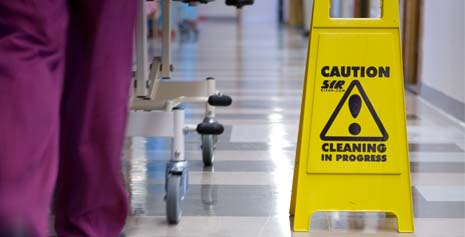
Course Benefits
-
This course is a mandatory requirement for people working the care sector.
-
The course is recommended by Skills for Care as minimum standards for people working in social care.
-
The course is recognised by the Care Quality Commission (CQC) as minimum standards that people working in social care need to meet before they can safely work unsupervised.
-
This course meets the Health and Safety module of the mandatory care certificate and the old Common Induction Standards (CIS).
-
The course meets all the knowledge criteria for Unit 8 of the QCF (NVQ) Diploma in Health & Social Care – Promote and Implement Health And Safety In Health and Social Care.
-
The course meets all the Health and Safety outcomes of the Certificate in Preparing to Work in Adult Social Care qualification otherwise known as the technical certificate.
-
The course can be used for credit transfer or Recognition of prior learning (RPL) to Unit 8 of the Technical Certificate in Health & Social Care – Understand health and safety in social care settings
-
The course can be used for credit transfer or Recognition of prior learning (RPL) to Unit 8 of the QCF (NVQ) Diploma in Health & Social Care – Promote and Implement Health and Safety In Health And Social Care
-
The Course has credit value under the QCF framework and recognized throughout the United Kingdom and Europe.
Course Objective
This course helps those who work in a wide range of care settings. It provides the knowledge required to understand areas of health and safety required to working in a social care setting.
Learning outcomes
At the end of this course, learner must be able to:
-
Understand the different responsibilities relating to health and safety in social care settings.
-
Understand risk assessments and their importance in relation to health and safety.
-
Understand procedures for responding to accidents and sudden illness.
-
Understand how to reduce spread of infection.
-
Understand how to move and handle equipment and other objects safely.
-
Understand the principles of assisting and moving an individual.
-
Understand how to handle hazardous substances.
-
Understand how to promote environmental safety procedures in the social care setting.
-
Understand how to manage stress.
-
Understand procedures regarding handling medication.
-
Understand how to handle and store food safely.
Course Contents
Module 1: Different responsibilities relating to health and safety in social care settings.
Module 2: Risk assessments and their importance in relation to health and safety.
Module 3: Procedures for responding to accidents and sudden illness.
Module 4: How to reduce spread of infection.
Module 5: How to move and handle equipment and other objects safely.
Module 6: Principles of assisting and moving an individual.
Module 7: Understand how to handle hazardous substances.
Module 8: Understand how to promote environmental safety procedures in the social care setting.
Module 9: Understand how to manage stress.
Module 10: Understand procedures regarding handling medication.
Module 11: Understand how to handle and store food safely.
Assessment Methods
This course can be assessed by a wide range of methods, depending on the level and

mode of study. Methods available include but not limited to the following:
-
Written Assignment
-
Observation
-
Multiple choice question (online only)
-
Professional discussion
-
Witness Testimony
Guided learning hours
An average of 20 hours is recommended for this course.
 HEALTH
HEALTH



